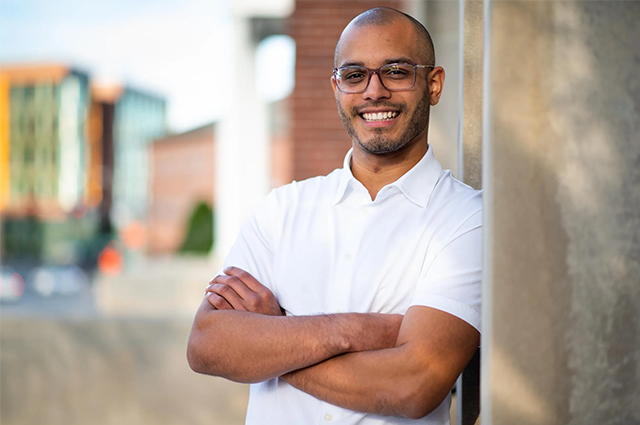Inventive by nature, engineers by calling: Avis Carrero, EG20, EG25

Avis Carrero, EG20, EG25
Avis Carrero, who first earned a master's degree in geosystems engineering at Tufts, is a Ph.D. candidate in civil and environmental engineering focused on DEI (Diversity, Equity, and Inclusion). Intending to support communities that have been historically excluded and under-resourced in STEM, he is researching the role of faculty in the pursuit of racial and educational equity in engineering education. His dissertation research about faculty pedagogical decisions in engineering and DEI is guided by Trevion Henderson, assistant professor of Mechanical Engineering. Carrero served as a graduate academic mentor for the StAAR Center at Tufts. He was among those honored by Jonathan M. Tisch College of Civic Life for his service and leadership last year with a Presidential Award for Civic Life. He also serves on the Anti-Racism and Equity Action team at the University of Connecticut, his undergraduate alma mater.
"My initial interest was geotechnical engineering, meaning I focus on the role of geologic materials in engineered systems. Now it's sustained in parallel with my interest in exploring the role of DEI in engineering education. They don't take away from each other. In fact, my engineering background trained me to think methodically, allowing me to navigate these complex DEI-related issues within a larger societal framework and my local engineering education context."
"My transition to focusing on DEI and education came in 2020 with the reemergence of the Black Lives Matter (BLM) movement and then the COVID-19 global pandemic. Some people have chosen to put their hands over their eyes regarding racist issues. For me, being a Black, LatinX, gay, first-generation college grad—and a human being—I realized I did not have a choice in terms of the things that I experienced or perceived."
"I now see my most rewarding work in education. I'm interested in how engineering faculty understand and engage with the DEI issues that define our time, ultimately capturing their mental model of DEI, as DEI can mean everything and nothing at the same time. In other words, I want to know how their conception of DEI influences decisions around how and what they teach. I view this as necessary in pursuing racial and educational equity in engineering. Each decision has implications, especially for students of color or students who have been historically excluded and exist at the margins of engineering. From my point of view, we are preparing the next generation of engineers, so how we teach them and what we teach—and also what we don't teach them—is very important."
"There are a lot of systems at play, especially in the context of DEI, and so to move forward, we need first to understand them and then work to deconstruct them. For any invention or new idea to come into being, old things must either be dialed off or reformulated. That's the approach I take in my work. My Ph.D. is not the end; it's the beginning. Throughout my entire career, I want to be grounded in the importance of pursuing DEI work in a field where it may seem like it has no place to some. I cannot do engineering work without considering the DEI issues I'm considering now. It's one way I remain true to my own experience."